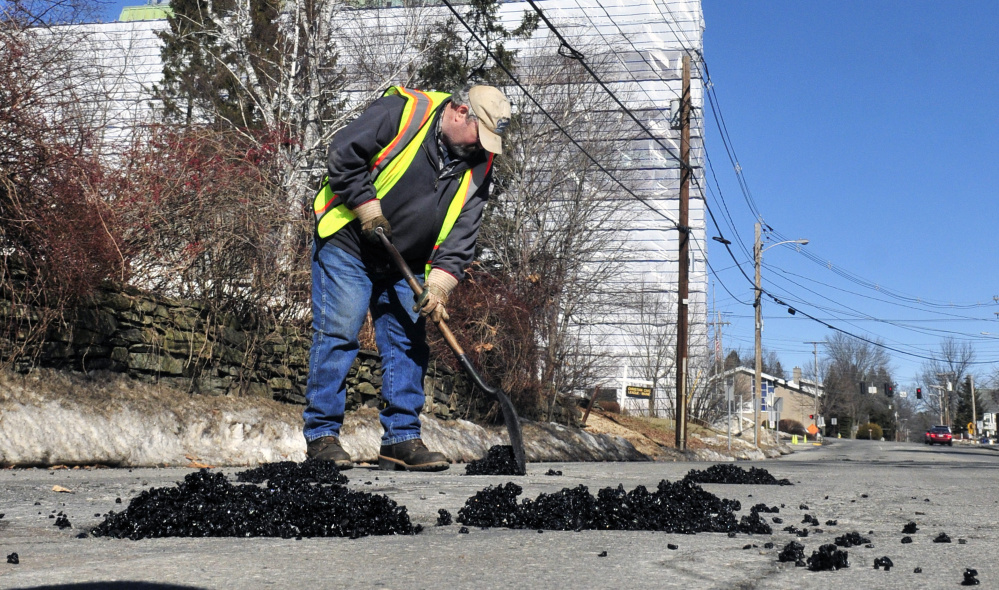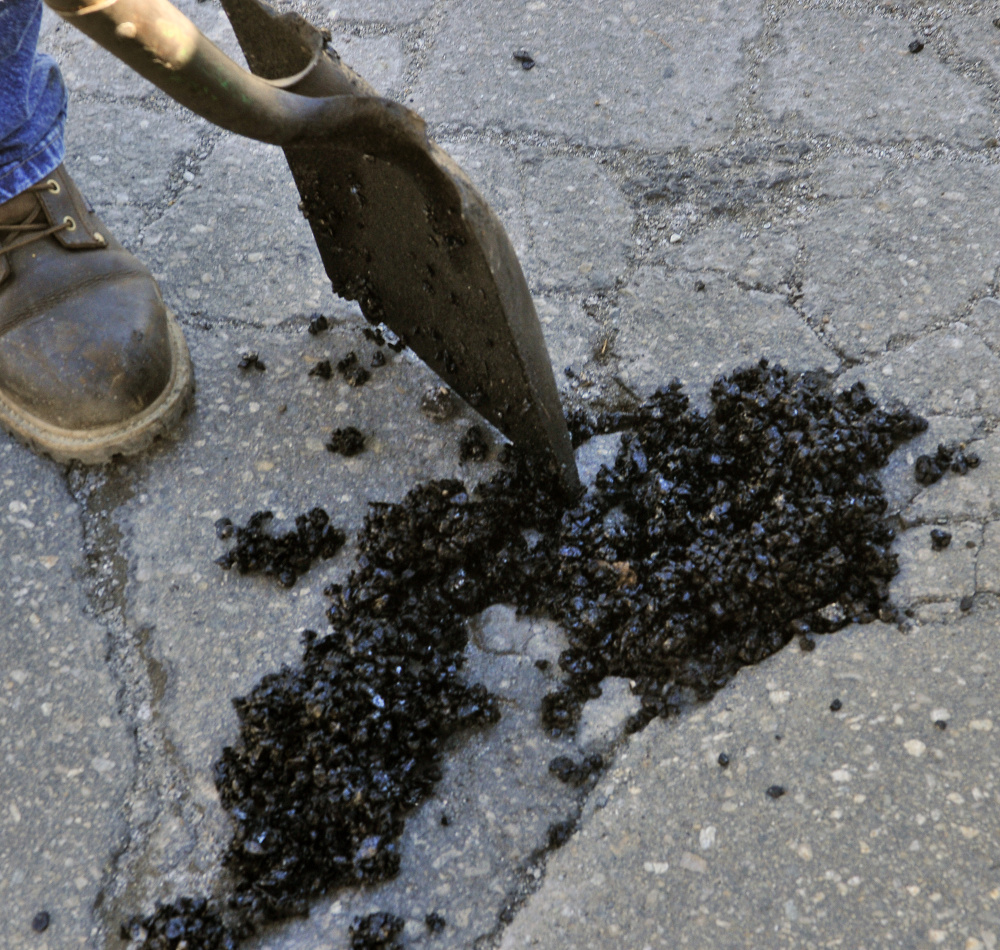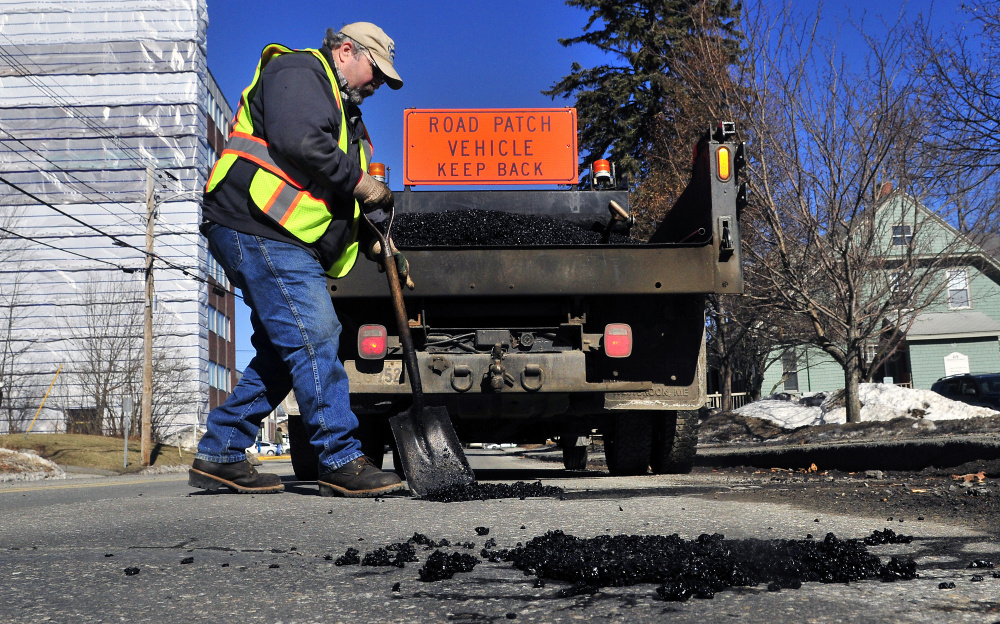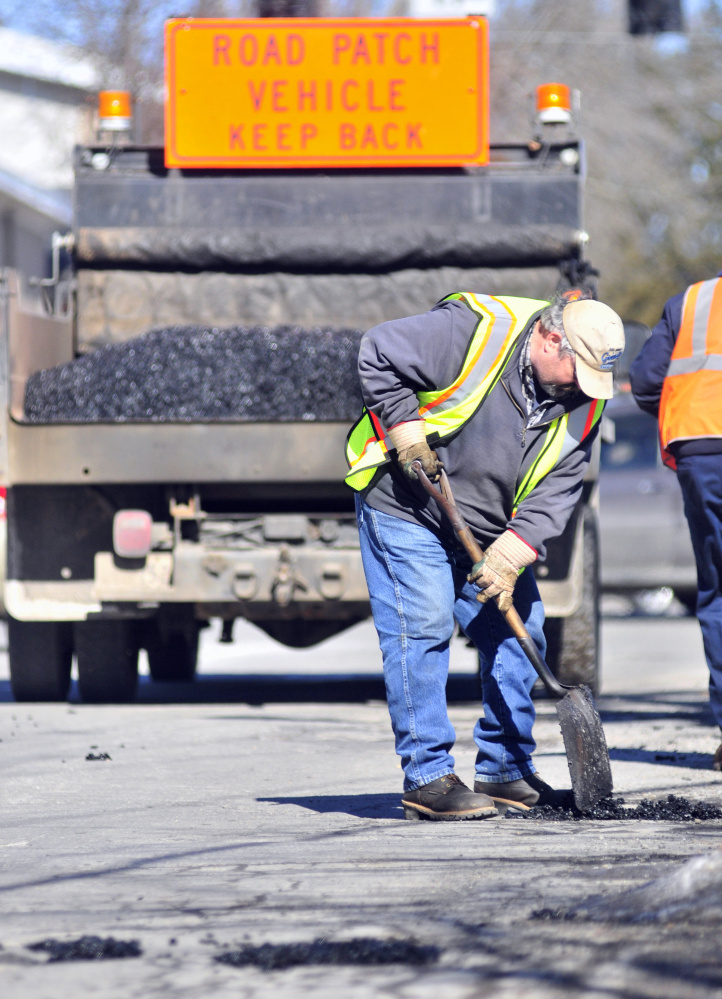Last February, Adam Phillips was driving his Toyota Camry on Sewall Street on his way to meet his girlfriend for dinner in Hallowell. He never made it.
Phillips said he was listening to music and drove into a pothole, which caused damage to his front left tire and the transmission. He missed his dinner date and spent more than $400 repairing the damage.
A recent study released by AAA said that pothole damage has resulted in $15 billion in vehicle repairs over the last five years.
But in Maine, the warmer temperatures this winter have helped keep the pothole problem in check.
Anthony Foster, who works at a repair shop in Augusta, said his shop usually has a couple of people a week who come in after hitting a pothole to have tires patched or bent wheels repaired, but not this year. Other local mechanics report drops in pothole-related business.
“So far this winter, the potholes have not caused as many issues, which is good for drivers, but not so good for business,” Foster said.
The AAA study said American drivers pay about $300 to repair pothole-related vehicle damage.
Lesley Jones, director of Augusta Public Works, said that in the past, she has seen problem spots on certain roads that always have potholes, but this year, that isn’t happening.
“The city has been routinely patching potholes for the last month or so,” she said. “But we don’t have a specific road that has a pothole problem.”
According to the National Weather Service in Gray, temperatures in Augusta have been 12 percent warmer than at this time last year.
But Dale Doughty, director of the Maine Department of Transportation’s Bureau of Maintenance and Operations, said the warmer temperatures have definitely kept the number of potholes down across the state.
“We are seeing potholes but not nearly to the extent that we normally do,” Doughty said. “Usually what we see after a long winter is the structure gets soupy, and heavy traffic drives the road into the soft sediment, but it’s been a pretty mild pothole season so far.”
Jones said the state has done a good job repairing roads in Augusta over the last several years, and having the roads in such good shape is limiting the potholes.
“We are fortunate because Maine DOT has fixed a lot,” Jones said. “One of the things we are benefiting from is that a lot of the potholes we do have are on state streets.”
Jones said that legally a pothole must be fixed within 24 hours of it being reported or discovered. On Friday, Augusta’s “pothole patrol” was on Sewall Street fixing a problem spot.
The department has been using a hot box with old pavement that is heated overnight, Jones said.
“In the morning, it’s a warm asphalt product that we can fill the pothole with, and because it’s warm, it will hold better than just throwing in cold mix.”
The pothole patrol costs thousands of dollars, Jones said, because it has two employees, a truck and a hot box machine out for the whole day repairing potholes.
Doughty said the robust paving program takes care of a lot of potholes, and Augusta just happened to hit the right time in the paving cycle.
“Some of the main roads in Augusta are in really good condition,” Doughty said. “I think they’re going to fare pretty well.”
Phillips said he has talked to several family and friends about potholes since his incident last year, and they all have reported less frequent encounters this winter.
“I would assume that the weather is helping, because the temperatures are warmer,” Phillips said. “The snow we have isn’t having enough time to sit on the roads. The local departments are doing a good job fixing the potholes that we do have, from what I can see.”
Gardiner’s public works director, Tony LaPlante, said he has seen some potholes like always, but he admitted this year has not been as bad as years past.
“We routinely go on patrol to fill them after any winter rain event as they tend to wash out,” LaPlante said. “We also go out weekly to be proactive filling them.”
The weather service said the Augusta region can expect warmer than normal temperatures over the next month with a few inches of normal precipitation.
Jones said the up-and-down change in weather from cold to warm, snow to rain and back that typically happens in the spring lends itself to potholes forming quickly. But so far, the city has not seen a big problem.
“It’s been a fairly mild winter, and I’m happy about that.”
Jason Pafundi — 621-5663
jpafundi@centralmaine.com
Twitter: @jasonpafundiKJ
Send questions/comments to the editors.







Success. Please wait for the page to reload. If the page does not reload within 5 seconds, please refresh the page.
Enter your email and password to access comments.
Hi, to comment on stories you must . This profile is in addition to your subscription and website login.
Already have a commenting profile? .
Invalid username/password.
Please check your email to confirm and complete your registration.
Only subscribers are eligible to post comments. Please subscribe or login first for digital access. Here’s why.
Use the form below to reset your password. When you've submitted your account email, we will send an email with a reset code.